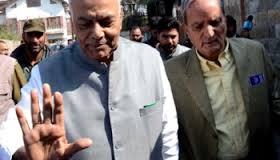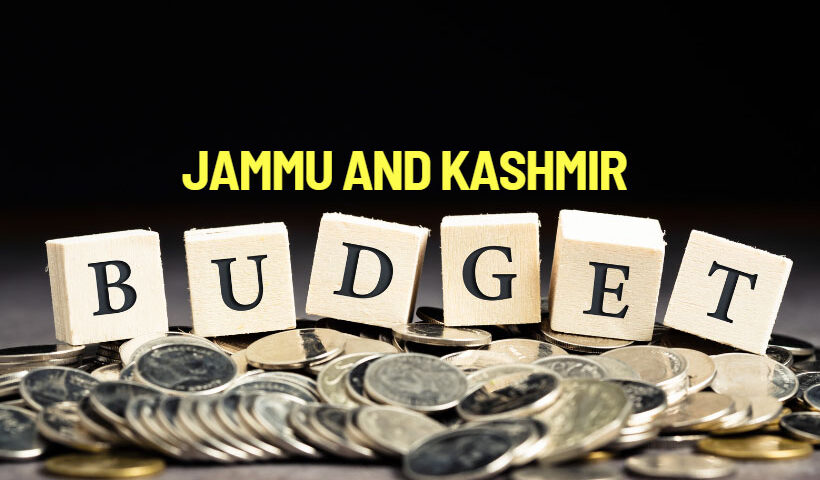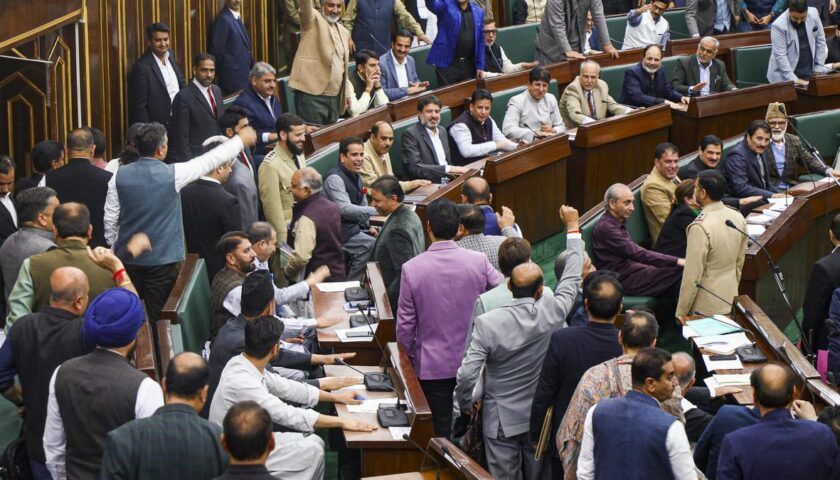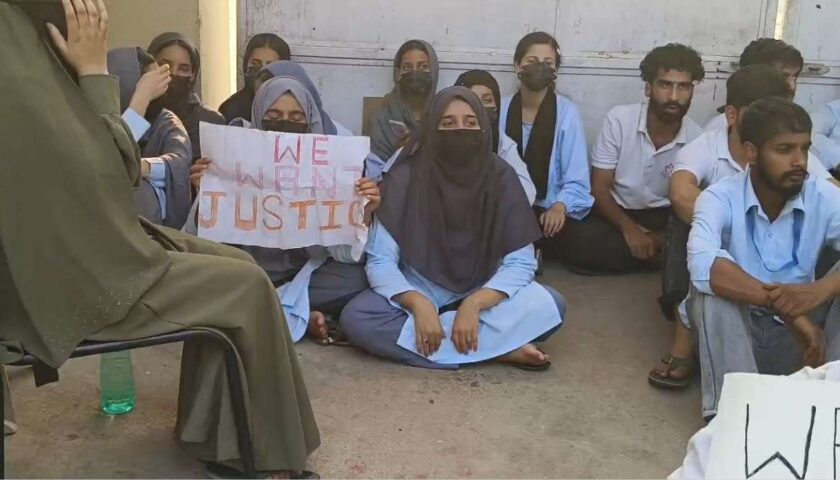 The government should hold talks with all stakeholders in Jammu Kashmir including separatists at the earliest besides taking other measures including ban on use of pellet guns and rehabilitation package for those injured in the ongoing uprising, a report by a group led by former external affairs minister and BJP leader Yashwant Sinha recommends.
The government should hold talks with all stakeholders in Jammu Kashmir including separatists at the earliest besides taking other measures including ban on use of pellet guns and rehabilitation package for those injured in the ongoing uprising, a report by a group led by former external affairs minister and BJP leader Yashwant Sinha recommends.
The Sinha-led panel comprising former Chief Information Commissioner, Wajahat Habibullah, former Air Chief Marshall, Kapil Kak, veteran journalist, Bharat Bushan and Programme Director of Centre for Dialogue and Reconciliation (CDR) Sushobha Barve who were on a three-day visit to Jammu Kashmir from October 25 to 27 released the report today to the media and spoke about the nature of meetings it held with the unified Hurriyat leadership including Syed Ali Shah Geelani, Mirwaiz Umar Farooq, Muhammad Yasin Malik, Governor N N Vohra and Chief Minister Mehbooba Mufti.
The report released by Sushobha Barve said Geelani and Mirwaiz “talked of being prepared for an unconditional dialogue” but added that it was not within the competence of the group of citizens to suggest “when or if such a dialogue process should be started”.
“However, what we would like to emphasise is that we noted an overwhelming sentiment amongst the Kashmiris we interacted with for setting up a permanent process of dialogue with New Delhi,” the report said. “One of the reasons why so many doors were opened for us by the separatists and ordinary Kashmiris alike was because they saw our visit as a beginning of engagement with ordinary Indians.”
The report said as the agenda of alliance of the BJP-PDP coalition government also commits to a dialogue with all the stakeholders they recommend that such a dialogue was initiated at the earliest.
The group also recommended starting of the process of reopening schools, release forthwith all first time offender school children and minors arrested under Public Safety Act.
It was also recommended that that repeat offenders among minors be shifted out of adult jails and put up in temporarily designated juvenile detention centres and given psychological counselling.
“Compensation must be announced for the next of kin of the civilians killed and for those wounded in police or action by the other security forces. This money may be transferred as Direct Bank Transfer to designated accounts to prevent extortion and rent-seeking from the suffering families by the state bureaucracy,” the report said. “Rehabilitation packages must be announced to ensure the life-time income needs of those permanently blinded by pellet guns.”
The report recommended that compensation and free treatment (both in India and abroad, if necessary) at state government expenses for those who have been partially blinded by pellet guns.
The committee also called for setting up a blind school in Srinagar for children blinded by pellet guns.
“The state does not have a blind school and this may be a means of rehabilitation by the state to provide education for children with blindness or partially blindness,” it said.
The committee also favoured ordering of a judicial commission into excesses by the police, especially the wanton use of pellet guns.
“While it is widely accepted that such commissions rarely lead to any conclusions, they serve a therapeutic purpose of allowing people to emotionally express themselves and it also helps project the state government as an accountable institution,” it said.
The committee asked New Delhi to impose a ban on use of pellet guns “with immediate effect” as a crowd control weapon saying this would have a “salutary impact on the Kashmiris”.
It also asked New Delhi to take steps for dispelling the perception that Kashmir and Kashmiris were mere tools to be used for electoral purposes.
The group said the Hurriyat leaders think that unless India and Pakistan talk there could be no permanent solution to the Kashmir issue.
“While most of them recommend tripartite talks on Kashmir between India, Pakistan and the Kashmiri leadership (without specifying which leadership), others are willing for some other form of dialogue between the three as in Vajpayee’s time,” it said. “They called it ‘triangular dialogue’ – presumably one in which India and Pakistan talk to each other and each of them then talks to the Kashmiris also.”
The report said there was widespread belief that without engaging Pakistan there could be no resolution of Kashmir issue.
Ban Pellet guns, Rehabilitate injured, Start talks with Resistance: Sinha-led panel to Govt




